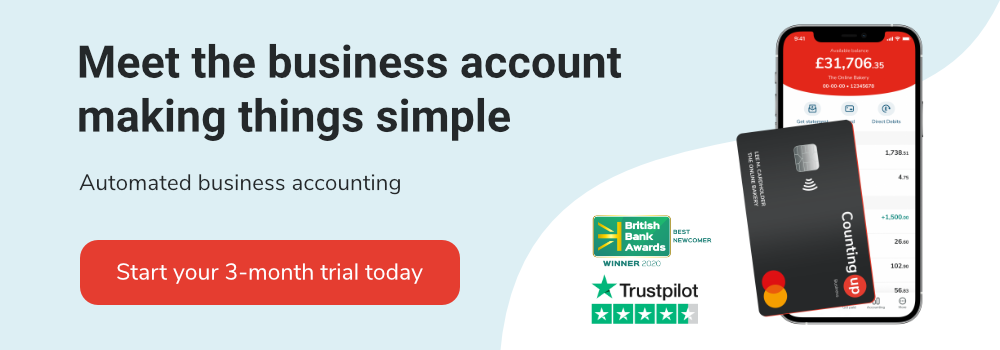How much should small business insurance cost?
Table of Contents
Business insurance can be an essential cost, since it protects your business should a disaster strike. There’s no set price, since each policy and provider comes up with their own unique plan.
This can make finding the right plan quite confusing, so join us as we explore how much small business insurance should cost.
- Why do you need insurance?
- How much should small business insurance cost?
- What factors determine price?
- How do you get a better deal?
- How can you manage the cost?
Why do you need insurance?
There’s loads of different types of insurance, but it’s all designed to protect your business in unexpected situations. For instance, contents insurance is designed to cover the damage to tools or equipment from flooding, a fire, or theft.
Having insurance in place prevents you from needing to replace all your damaged equipment yourself. Other types of insurance can protect you in case someone gets injured on your premises.
For some industries, insurance is a legal requirement. If your business works on a public site or with machinery, you may need public liability insurance.
How much should small business insurance cost?
If you’re looking for a clear cut answer, you won’t find one. The closest we can give you is “it depends”.
Business insurance changes depending on several factors, from your personal details to even the industry you’re in. Each policy is generated for individual customers, so your policies will be unique to you.
Policy cost can even change over time, depending on how ‘risky’ your provider thinks your business is.
What factors determine price?
Insurance typically consists of packages, which vary in cost depending on what they include.
The following areas have the biggest impact on your costs and premiums.
Industry
The industry your business is in will have a huge impact on the cost of your insurance. The more risk that’s involved, the more you’ll have to pay.
For example, a manual labourer will have to pay more than a freelance writer; since the writer works with less dangerous equipment.
Cover
The level of cover you select for your business also drastically alters your premiums.
In general, a higher level of cover means more protection — but also a higher cost. To get the most out of your money, consider what type of cover your business really needs.
If you’re in an area with no risk of flooding, that could be one aspect you don’t need protection for.
Excess
The amount of money you’re personally willing to pay towards a claim is known as your excess. All plans have a compulsory excess that you have to pay, but you can also choose a voluntary excess.
The more you decide to pay voluntarily, the lower your monthly payments will become.
Of course, this does mean that you’ll have to pay more out of your own pocket when making a claim.
Size
The size of your business is a pretty big factor, and it directly affects the cost of insurance. The smaller your business, the less you have to pay.
As a small one-person business, chances are this is already as low as possible — but it’s something to watch out for if your business grows in the future.
Previous claims
As a general rule of thumb, the more someone claims on their insurance the higher their monthly charges will be.
While you don’t get a ‘No Claims Discount’ like you would with car insurance, fewer claims will lead to a lower price. This is because you’re seen as a lower risk, than a business that frequently needs to claim a payout.
How do you get a better deal?
The price you get depends on the above factors, as well as the provider you choose.
Shop around
The best way to find the lowest price is to shop around. Visit different insurance providers, and have a look at the deals they have on offer. Don’t be afraid to turn down providers if they’re charging too much.
Providers you’ve contacted and turned down may even try to negotiate with you. This can lead to you getting a lower price than they publicly offer, but this isn’t guaranteed.
Of course, it can be exhausting to visit each provider individually. If you want to save time, try using price comparison sites like CompareTheMarket.com. These sites compare hundreds of providers using your specific terms, and rank quotes based on price and level of cover.
Price comparison sites can even show you the price difference between paying monthly and yearly. If you have the available capital to spend at once, you can usually save money in the long-term.
Be completely honest
When setting up your insurance, it’s best to be as accurate and honest as possible. Any false information (accidental or otherwise) can prevent you from receiving a payout when you need it most.
This could be devastating if you lost all your inventory in a fire, and had a claim rejected because your policy wasn’t correct.
How can you manage the cost?
Business insurance is tax deductible, provided it’s ordinary and necessary. That means you can remove the cost of the insurance from your taxes on your annual Self Assessment.
If you’re having trouble with managing which other costs are tax deductible, give the Countingup app a try. This two-in-one business current account and accounting software combo boasts loads of features, including automatic expense categorisation.
This can sort all your business expenses into HMRC-compliant categories, perfect for simplifying your finances.
So what are you waiting for?
Receive actionable business tips weekly
By submitting this form, you confirm that you are 16 years of age or over and that you have read and agree to our Privacy Policy. You can unsubscribe at any time.




